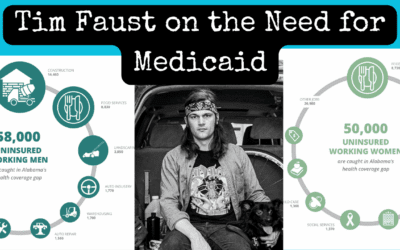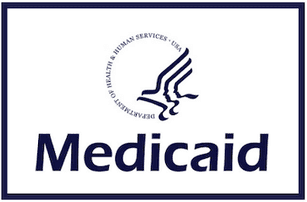Exploring the Role of Trauma in Perinatal Health Outcomes
How Does Trauma Effect Childbirth?
Trauma is a pervasive and often overlooked factor in shaping perinatal health outcomes. From childhood adversity to interpersonal violence to birth-related trauma, experiences of harm and threat can have profound impacts on women’s physical, emotional, and psychological well-being during pregnancy and the postpartum period. In this article, we will delve into the complex relationship between trauma and perinatal health, exploring risk factors, mechanisms of impact, and strategies for healing and resilience.
The Prevalence of Trauma among Perinatal Women
Research has consistently shown that women are at high risk for experiencing trauma across the lifespan, with rates of childhood abuse, sexual assault, and intimate partner violence being particularly prevalent (1). These experiences can have lasting impacts on health and well-being, including increased risk for chronic pain, autoimmune disorders, and mental health concerns such as depression, anxiety, and PTSD (2).
For many women, the perinatal period can be a time of heightened vulnerability to the effects of past trauma. The physical and emotional demands of pregnancy and childbirth can trigger memories of previous violations or activate unresolved feelings of fear, shame, or powerlessness (3). Women with histories of sexual trauma may experience difficulty with invasive medical procedures or feel a lack of control over their bodies during labor and delivery (4).
Trauma and Perinatal Mental Health
The intersection of trauma and perinatal mental health is a critical area of concern for maternal health providers. Women with histories of trauma are at significantly higher risk for developing perinatal mood and anxiety disorders, including postpartum depression and PTSD (5). These mental health concerns can have profound impacts on maternal well-being, attachment security, and child development outcomes (6).
The groundbreaking work of researchers like Beatrice Beebe and Edward Tronick has illuminated the critical role of early mother-infant interactions in shaping brain development and emotional regulation (7). Women who are struggling with the effects of trauma may have difficulty providing the sensitive, attuned caregiving that is essential for healthy attachment and development. This can create a cycle of intergenerational trauma, as children of mothers with unresolved trauma are at higher risk for developmental and mental health concerns (8).
Birth-Related Trauma and Perinatal Outcomes
In addition to the impacts of prior trauma, women may also experience traumatic events during pregnancy, childbirth, or the postpartum period. Birth-related trauma, which can result from medical complications, unexpected interventions, or perceived loss of control during labor and delivery, is a significant concern for perinatal health providers (9).
Women who experience birth-related trauma may struggle with symptoms of PTSD, including intrusive memories, avoidance of reminders of the birth, and hyperarousal. These symptoms can interfere with maternal-infant bonding, breastfeeding, and overall adjustment to motherhood (10). Birth trauma can also have ripple effects on the family system, as partners may experience secondary traumatic stress or struggle to support the needs of the traumatized mother (11).
Trauma-Informed Perinatal Care
Given the high prevalence and significant impacts of trauma on perinatal health outcomes, it is essential that maternal health providers adopt a trauma-informed approach to care. Trauma-informed care is a framework that recognizes the pervasiveness of trauma and seeks to minimize the risk of re-traumatization in healthcare settings (12).
Core principles of trauma-informed care include safety, trustworthiness, choice, collaboration, and empowerment (13). In the perinatal context, this may involve providing clear explanations of procedures, offering choices and control where possible, and creating a safe and supportive environment for women to process their experiences. Providers should also be trained to recognize and respond to signs of trauma, and to provide appropriate referrals for mental health support when needed.
Strategies for Healing and Resilience
For women with histories of trauma, the perinatal period can be a time of great challenge but also of profound opportunity for healing and growth. Engaging in trauma-focused psychotherapy, such as cognitive processing therapy or prolonged exposure therapy, can help women process unresolved traumatic memories and develop coping skills for managing distress (14).
Somatic approaches to trauma healing, such as sensorimotor psychotherapy or trauma-sensitive yoga, can also be valuable for women in the perinatal period (15). These approaches focus on building awareness of and trust in the body, which can be particularly important for women who have experienced physical or sexual violations.
Peer support and community-based programs can also play a vital role in promoting resilience and healing for perinatal women with trauma histories. Connecting with other survivors, sharing stories, and receiving validation and support can help reduce feelings of isolation and shame and foster a sense of empowerment and hope (16).
To learn more about trauma-informed perinatal care and support services, please contact Dr. Haley Beech at Taproot Therapy Collective by emailing [email protected].
References:
- Beebe, B. & Lachmann, F. (2013). Infant research and adult treatment: Co-constructing interactions. Routledge.
- Choi, K. W. & Sikkema, K. J. (2015). Childhood maltreatment and perinatal mood and anxiety disorders: A systematic review. Trauma, Violence, & Abuse, 17(5), 427-453.
- Cloitre, M., Cohen, L. R., & Koenen, K. C. (2006). Treating survivors of childhood sexual abuse: Psychotherapy for the interrupted life. Guilford Press.
- Fisher, J., Cabral de Mello, M., Patel, V., Rahman, A., Tran, T., Holton, S., & Holmes, W. (2012). Prevalence and determinants of common perinatal mental disorders in women in low- and lower-middle-income countries: A systematic review. Bulletin of the World Health Organization, 90(2), 139-149.
- Meltzer-Brody, S. (2011). New insights into perinatal depression: Pathogenesis and treatment during pregnancy and postpartum. Dialogues in clinical neuroscience, 13(1), 89-100.
- Porges, S. W. (2011). The polyvagal theory: Neurophysiological foundations of emotions, attachment, communication, and self-regulation. W. W. Norton.
- Postpartum Support International. (n.d.). About PSI. https://www.postpartum.net/about-psi/
- Substance Abuse and Mental Health Services Administration (SAMHSA). (2014). SAMHSA’s concept of trauma and guidance for a trauma-informed approach. https://ncsacw.samhsa.gov/userfiles/files/SAMHSA_Trauma.pdf
- Tronick, E. (2007). The neurobehavioral and social-emotional development of infants and children. W. W. Norton.
- Van Der Kolk, B. (2015). The body keeps the score: Mind, brain, and body in the healing of trauma. Penguin Books.


























0 Comments